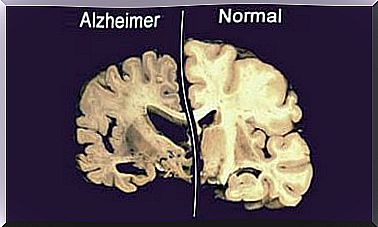5 Nutritional Deficiencies That Cause Chronic Fatigue
A balanced diet is fundamental for our body to function properly. Nutritional deficiencies can explain your fatigue.

If you have a hard time getting up every day, you may be suffering from chronic fatigue. In addition to some bad habits, you need to pay attention to your diet. Nutritional deficiencies can be the root cause of chronic fatigue
Fatigue is a red flag to which we must pay attention. The main factors behind chronic fatigue are:
- taking medication (antidepressants and antihistamines)
- medical treatments (radiation, chemotherapy, etc.)
- post-operative state
- stress, depression, anxiety
- mourning
- personal problems
- sedentary lifestyle
- Sleep late
- caffeine and alcohol
- bad nutrition
- lack of vacation
Chronic Fatigue Syndrome is a condition that many people suffer from. To be diagnosed, the patient must suffer from constant fatigue for at least 6 months.
The main symptoms are:
- headache
- muscle aches
- tender lymph nodes
- memory problems
- irritability
- lack of vitality
Food can play a decisive role. It’s not about the amount of food you eat every day, but the quality of the food your body receives. Nutritional deficiencies and “empty” calories are the root of many health problems.
1. Vitamin C

The immune system is the main beneficiary of this nutrient. We need to consume foods that contain vitamin C because the body does not produce it on its own.
We need to eat citrus fruits , tomatoes, or peppers to metabolize protein and for our neurotransmitters to function normally.
Vitamin C deficiency causes joint pain , inflammation of the gums and frequent flu.
2. Vitamin D
This vitamin has the ability to regulate calcium in the body, maintain healthy bones and increase muscle movement. In addition, it helps the immune system, reduces inflammation and prevents fatigue.
The blue fish will be your allies. It is also recommended to be exposed to sunlight for fifteen minutes a day.
3. Iron deficiency, one of the most common nutritional deficiencies
You don’t have to be anemic to suffer from iron deficiency . According to the World Health Organization, lack of iron is the main nutritional problem of the world’s population.
The most common symptoms are: frailty, fatigue and poor cognitive development.
Iron deficiency is linked to poor work performance, immune system imbalances and body temperature.
4. Magnesium

This nutrient is found in vegetables, dried fruits and whole grains.
Magnesium deficiency causes:
- nausea
- feeling weak
- numbness in the extremities
- loss of appetite
- abnormal heart rhythms
- muscle contractions
5. Vitamin B
Vitamins B1, B6 and B12 are the most important in people. Nutritional deficiencies in these vitamins cause fatigue, depression, loss of muscle mass and loss of appetite. It also causes sarcopenia, a disorder characterized by frailty.
- Vitamin B1 o thiamine is responsible for regulating the functions of the nervous system and metabolizing sugars in the blood.
- Vitamin B6 controls appetite and metabolizes fat.
- As for vitamin B12, it prevents depression and chronic fatigue.
It is estimated that 15% of the population suffers from B vitamin deficiencies.









